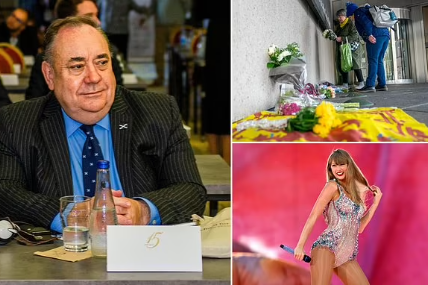Electric vehicle targets are set to be watered down by Labour to allow the sale of hybrid models until 2035 amid growing pressure from car-makers.
Ministers are weighing up what types of cars manufacturers will be permitted to sell after a 2030 ban on new petrol and diesel vehicles comes into force.
Former transport secretary Louise Haigh, who resigned yesterday, was reportedly open to allowing the sale of fully hybrid, Toyota Prius-style vehicles – which drives on both a normal engine as well as a battery – until 2035.
Her departure will not change that view, it is believed. This would mean effectively adopting plans first introduced in 2020 by former prime minister Boris Johnson, and would represent a climb-down on Labour’s ambitious green vehicle plans.
Manufacturers have been lobbying for a change to the zero-emission vehicle (ZEV) mandate, which forces brands to sell an increasing proportion of electric cars each year. The industry has argued consumer appetite for electric vehicles is still too low.
Stellantis – which owns Vauxhall – earlier this week blamed the mandate as it announced plans to close its van factory in Luton, putting 1,100 jobs at risk.
Labour may now shift their policy to allow the sale of full-hybrid vehicles for five years longer than first planned to quell more discontent. The party’s manifesto promised to restore the original 2030 phase-out date for the sale of new cars with pure internal combustion engines – which included full hybrids.
The technology, pioneered by the Toyota Prius, uses the engine to recharge the vehicle’s battery rather than plug-in points. Toyota has previously said the move would help to secure the future of its UK factory in Burnaston, Derbyshire.

Tesla remains the most talked-about player in the electric vehicles market, despite growing competition from both traditional automakers and China

Motor giant Stellantis, which owns Vauxhall, earlier this week announced plans to close its van factory in Luton, putting 1,100 jobs at risk blamed the zero-emission vehicle (ZEV) mandate, which forces brands to sell an increasing proportion of electric cars each year
Figures released this week by the Society of Motor Manufacturers and Traders showed the UK produced 15 per cent fewer cars in October compared with a year ago, with just 77,484 vehicles rolling off production lines.
Chancellor Rachel Reeves said: ‘It is really important… to make sure that we get the balance right and [have] proper support for the car industry in Britain. We want people to buy electric vehicles, but we want to keep jobs, we want to keep investment in Britain, and we’re determined through the consultation to do just that.’
The Department for Transport declined to comment last night.
Last month it said: ‘We have always been committed to restoring the original 2030 phase-out date for the sale of new cars with pure internal combustion engines.
‘The original date included the provision for some hybrid vehicle sales between 2030 and 2035. We know it is important to provide stability for drivers and will set out further details in due course.’


